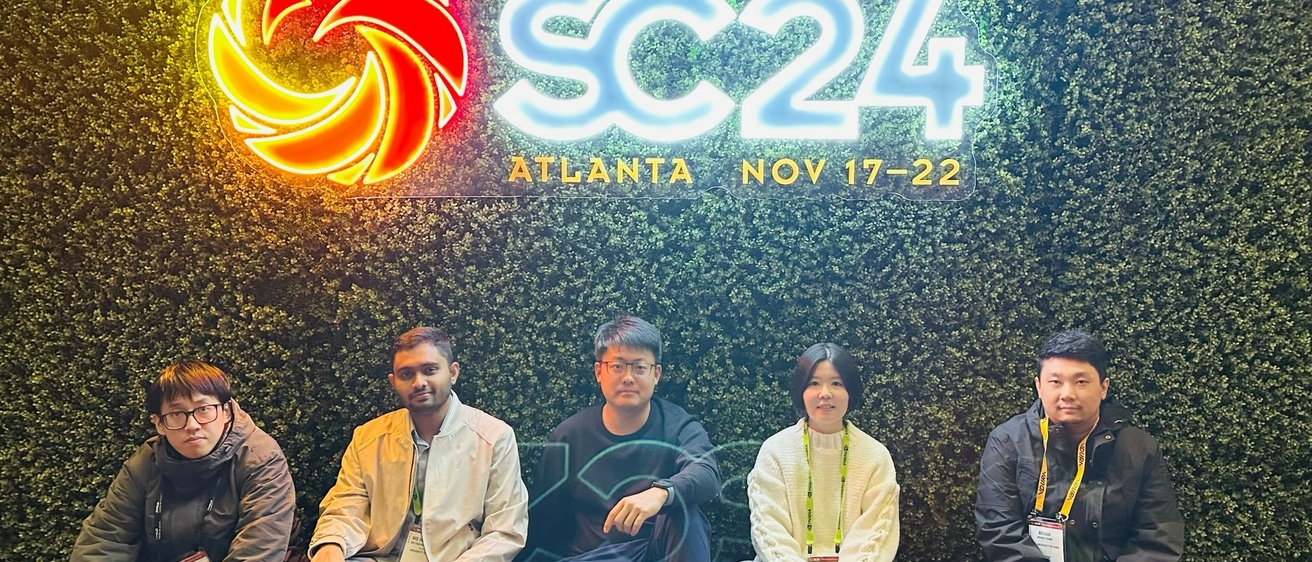PhD students Yafan Huang, Hasan Rahman, Shihui Song, and Bohan Zhang traveled to Atlanta, Georgia this November to attend SC24, the International Conference for High Performance Computing, Networking, Storage, and Analysis. The group was also joined by Guanpeng Li, an assistant professor in the Department of Computer Science. All the PhD students in attendance are members of the Iowa-HPC Lab, which is co-led by Li and fellow UIowaCS faculty Peng Jiang. Li is also an advisor to Huang, Rahman, and Zhang.
Notably, Huang had three papers accepted to the conference, including:
-
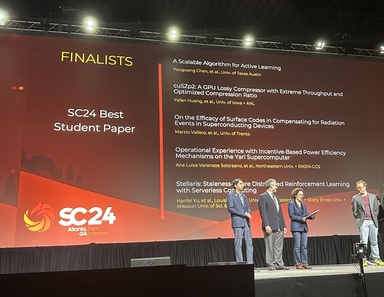
A first-authored paper, “cuSZp2: A GPU Lossy Compressor with Extreme Throughput and Optimized Compression Ratio”. cuSZp2 is a GPU error-bound lossy compressor with an extreme throughput and optimized compression ratio, which is highly suitable for in-situ data compress where big data is generated.
- “Versatile Datapath Soft Error Detection on the Cheap for HPC Applications”, a first-authored paper in which Huang proposes a soft error detection framework for hardware datapath units that only requires light-weight software-level modifications. ConDa involves several compiler-level optimizations, guaranteeing high error detection effectiveness and low runtime overhead.
- “cuSZ-i: High-Ratio Scientific Lossy Compression on GPUs with Optimized Multi-Level Interpolation” a paper Huang co-authored with researchers from other universities across the United States and the Argonne National Laboratory. cuSZ-i is a new GPU-based error-bounded scientific lossy compressor that significantly improves the compression ratio and decompression data quality. cuSZ-I is the “first to integrate the NVIDIA Bitcomp-lossless as an additional compression-ratio-enhancing module”.
In addition to presenting both of his first-authored papers, Huang’s research for “cuSZp2”, was one of five finalists for the conference’s prestigious Best Student Paper Award. The overall paper acceptance rate of SC conferences is 24%.
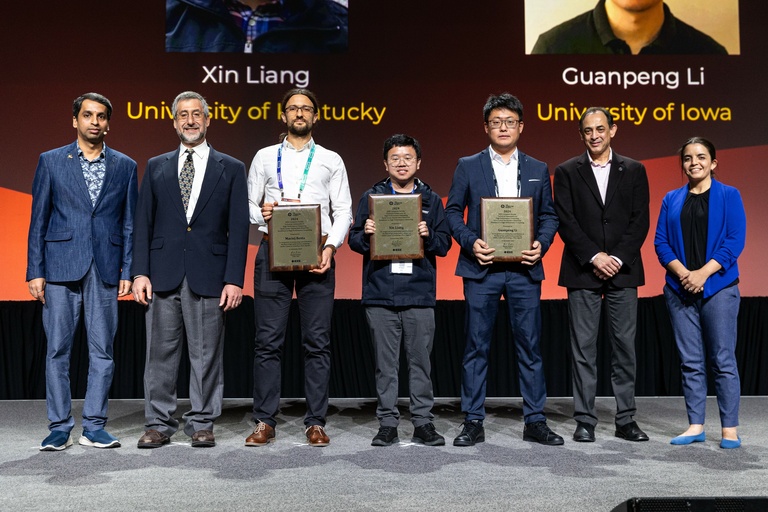
SC’24 also recognized Li, who received the IEEE-CS Technical Community on High Performance Computing (TCHPC) Early Career Researchers Award for Excellence in High Performance Computing. Each year, the IEEE Computer Society recognizes up to three individuals who have made “outstanding, influential, and potentially long-lasting contributions in the field of high-performance computing” within five years of receiving their PhD. Li received his PhD from the University of British Columbia in 2019 and has since has since garnered several best paper awards and nominations for his research.
SC is one of the most esteemed conferences in HPC. For those who have never attended an SC conference before, how would you describe the atmosphere there?
Rahman: The atmosphere was absolutely incredible. No matter where you turned—whether it was the exhibition floor, poster sessions, tutorials, workshops, or research paper presentations—there was always something exciting happening. The sheer volume of knowledge being shared was astonishing. It’s an environment where you’re constantly surrounded by experts and innovators, making every moment an opportunity to learn and connect.
Huang: It’s huge. I’ve never seen another computer system conference that has more than 10,000 people. If you’re working on high performance computing, there are lots of subareas and every area has lots of technical papers and workshops. I found some people who are working on machine learning systems on a different topic from me, but we talked and were able to learn something from each other, so there’s the potential collaboration aspect as well.
Zhang: It’s a welcoming and collaborative environment where everyone is eager to share knowledge. You get to listen to engaging presentations and discussions with brilliant minds in HPC.
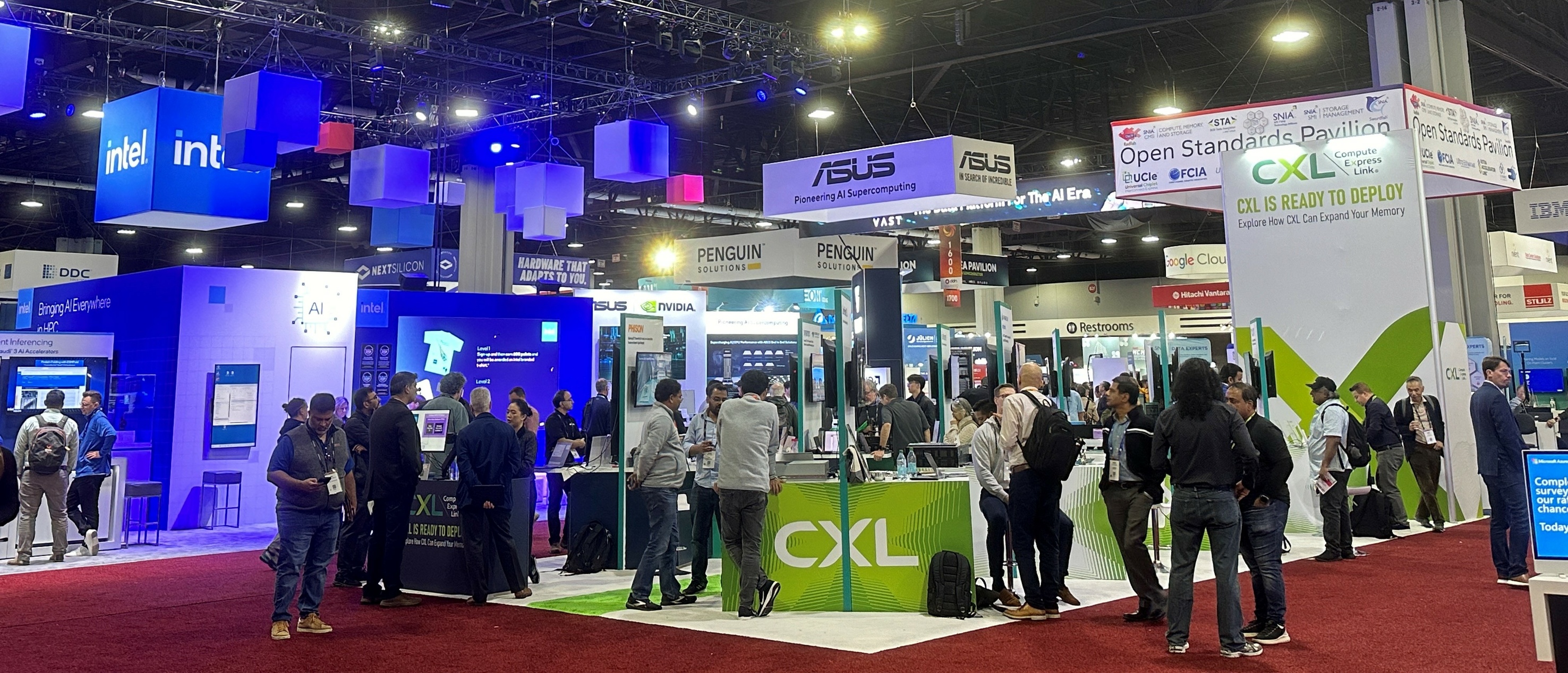
What was your favorite part about your week at the conference?
Rahman: I particularly enjoyed engaging with and exchanging ideas with young researchers. I see them as my potential future collaborators. SC provides an exceptional platform for these interactions, as it brings together a majority of experts and enthusiasts from my research field. It’s always exciting to connect with such a vibrant community in one place.
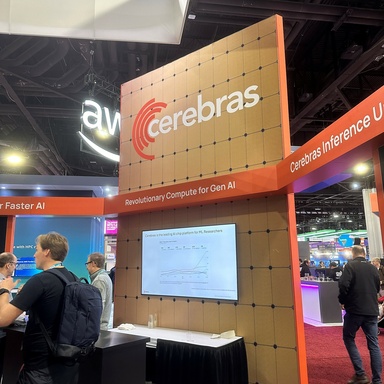
Huang: My favorite part was the industry exhibition. There were hundreds of booths, including companies, national labs, and universities. For example, we saw Indiana University and Google, but there were also some emerging companies like Cerebras and SambaNova, who were showing their latest products and plans for the future. I also went to a workshop where I met the person who invented PyICU, which is a very famous library. I use PyICU a lot, but I never thought I would meet its creator in person, so it was really exciting for me. I felt honored to be able to talk to him and learn about his current projects and what he wants to explore in the future.
Song: I’m doing some research on Cerebras's AI chip, and I listened to a small talk from Intel about their AI chip, Gaudi. During that talk, I learned more about how to compare the performance between these AI chips and how these chips are implemented. I have a paper related to the compression algorithms on the Cerebras AI chip, but now I'm inspired to apply this algorithm to Gaudi.
Zhang: Seeing the cutting-edge technologies from leading companies, like the latest GPUs and cooling solution, getting to interact with industry experts and learning about how these innovations push HPC boundaries, and of course, collecting some amazing gifts and souvenirs added to the fun experience.
Hasan, you were also a student volunteer at the conference. What were some of your responsibilities? How did you balance your time with these responsibilities while also being an attendee at the conference?
This opportunity was invaluable, not only for my professional development but also for engaging with some of the most impactful researchers in my area.
As a volunteer at such a large-scale event, responsibilities could be diverse. One of my key duties was assisting session chairs in ensuring sessions ran smoothly and efficiently. This required me to stay organized, communicate effectively with the attendees, and adapt to the fast-paced nature of the conference.
Balancing my volunteering duties with being an attendee and presenter was a matter of thoughtful approach. I carefully selected my volunteer shifts to allow sufficient time to attend sessions, particularly those featuring cutting-edge research papers. For me, these sessions are essential for any graduate students to gain insight into the latest advancements in the field. By structuring my schedule this way, I was able to fulfill my volunteer commitments while making the most of the learning and networking opportunities the conference had to offer.
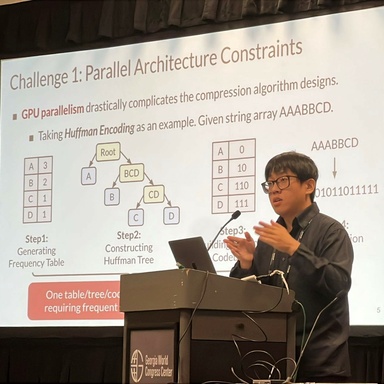
Yafan, how did it feel to present your research and be named a finalist for the Best Student Paper award?
Getting my papers accepted was a huge honor for me. I put a lot of effort into my presentations, especially the cuSZp2 paper that was nominated for Best Student Paper. After my talk for the cuSZp2 paper, I remember getting five or six questions, which is a lot, because usually when I present papers, I only get one question from the host and no questions from the audience. At SC24, I saw lots of people ask questions. It was a very precious experience.
What advice do you have for those interested in attending conferences?
Rahman: Don’t hesitate to engage with people— it’s one of the most rewarding aspects of attending a conference. You might be surprised by how welcoming and approachable attendees can be. When I attended my first conference, I felt overwhelmed by the sheer number of experts around me. I wasn’t sure whom to approach or how to start a conversation. Over time, I realized that conversations don’t always need to be highly technical. A simple ‘hello’ followed by a brief introduction is often all it takes to get started
Huang: Don’t just talk to professors — remember to talk with your peers as well. Talking to others outside of your research area is important for creating new ideas.
Song: I think people should check the conference schedule to see what they are interested in before they go. [SC is] a very large conference and there are a lot of different topics. Once you know what you’re interested in, you can narrow down what workshops you go to.
Zhang: Don’t miss the exhibitions. They offer a great chance to see cutting-edge technologies and engage with companies. Engage in discussions and ask questions. Conferences are a rare opportunity to learn directly from experts.
“[SC’24 is] like a festival for computer science"
- Yafan Huang
